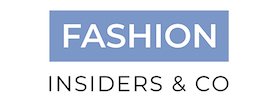Being a fashion start-up business owner means that you need to wear a lot of hats, and one of the most challenging to make fit, is the legal hat.
So this week, Tahir Basheer of law firm Sheridans explains what issues need to be addressed regarding structuring an employment contract.
Numerous recruiters from high street brands regularly attend the Graduate Fashion Weeks, eager to get their hands on the next wave of emerging talent and sign them up. In the wake of this employment feeding frenzy, it seems apposite to stress the importance of brands making sure that they get it right when it comes to employment contracts.
No matter who you are hiring, be it designers straight out of university or seasoned directors looking to shake up your business strategy, if brands do not take the right steps to ensure they have proper employment contracts in place, they can face big problems.
This is an area in which we have seen things go really wrong for both brands and designers. In the absence of a well-drafted employment contract, ambiguities as to the rights of both parties can result in protracted (and expensive) disputes further down the line.
A clearly written document, outlining the key terms of the relationship between employer and employee is invaluable. Not only does it ensure that both parties understand the terms of the employment, it also highlights the obligations that individuals owe to the business.
Brands should note that where a contract is not clear, the contra proferentem rule may apply. This means that where there is doubt about the meaning of the contract, the words will be construed against the person who put them forward (usually the employer).
Key Issues in Employment Contract
Here are a few issues to consider regarding what your employment contract should cover:
- The employment contract contains all the ‘particulars of employment’ as required by the Employment Rights Act 1996
- Current employment legislation is accurately incorporated.
- The employment contract contains enforceable non-compete and/or non-solicitation clauses.
- The business’s intellectual property is sufficiently protected and the business has secured ownership of the relevant rights. This is especially important for businesses operating in the fashion industry, where protection of a brand is essential to the health of the organisation.
- The business’s confidential information is securely protected both during employment and post-termination.
There are numerous other factors to consider when undergoing a process of recruitment. Whether you are just starting up or you are already an established brand, you need to be thinking about the way in which your business complies with the terms of its employment contracts.
Here are some issues to consider:
- Appointing a payroll provider and registering with HMRC for payroll.
- Creating and implementing staff policies that are specific to your business, either individually or in the form of an ‘Employee Handbook’.
- Pension arrangements for your employees are in line with your ‘staging date’ for auto-enrolment, ensuring that you have the necessary arrangements in place well before that date (specialist advice may be required).
- Carrying out a health and safety risk assessment of your work premises and ensuring that the business has the necessary insurance policies in place.
Final Thoughts
Trite though it may seem, a well-drafted employment contract is an essential element of any relationship of employment and can help brands avoid the costs of litigation and the potential damage that can be done to a brand’s image when a dispute goes public. Ensuring that the terms of employment are clear to both parties at the outset is a very good way of militating against such a risk.
A final point to bear in mind is that brands looking for external investment need to have their house in order if they want to attract finance. A prospective investor or purchaser will want to know that the business has provisions in place with its employees which protect intellectual property, retain key talent and keep sensitive company information confidential.



